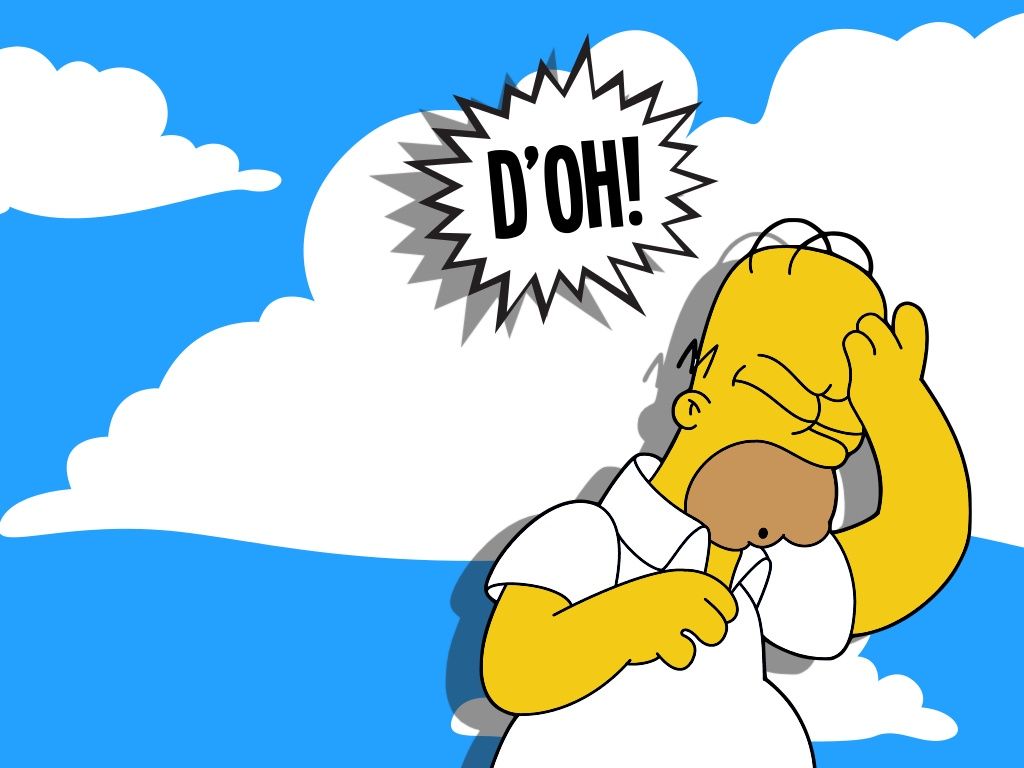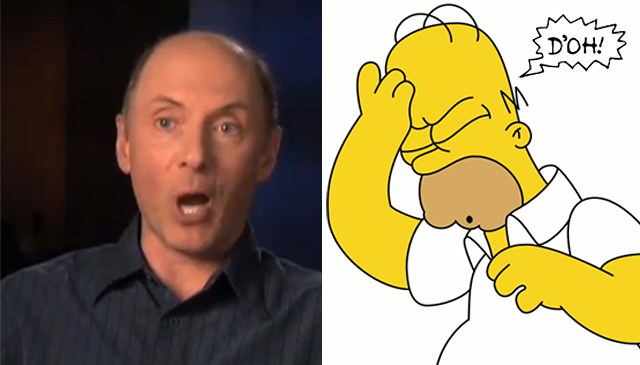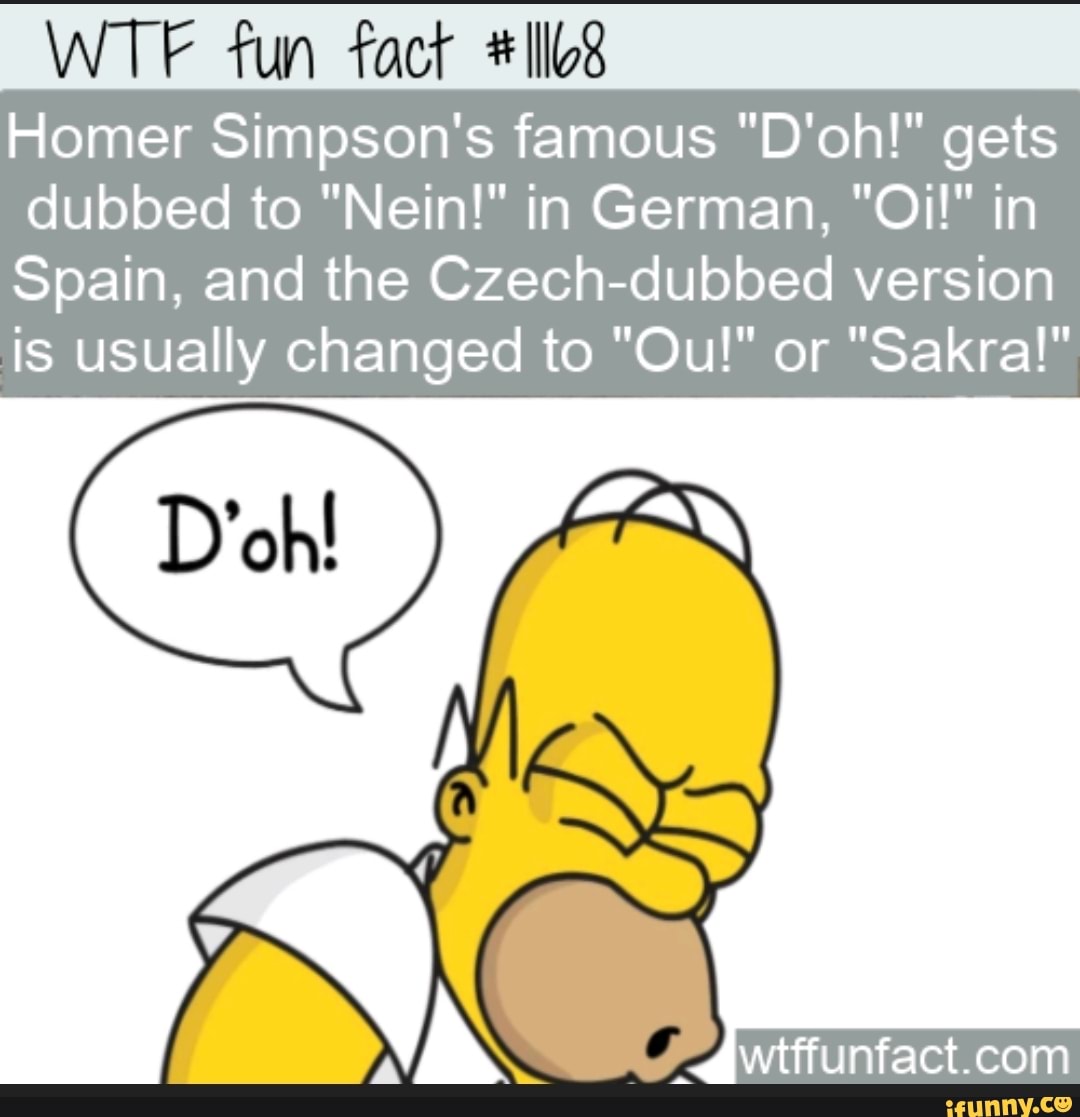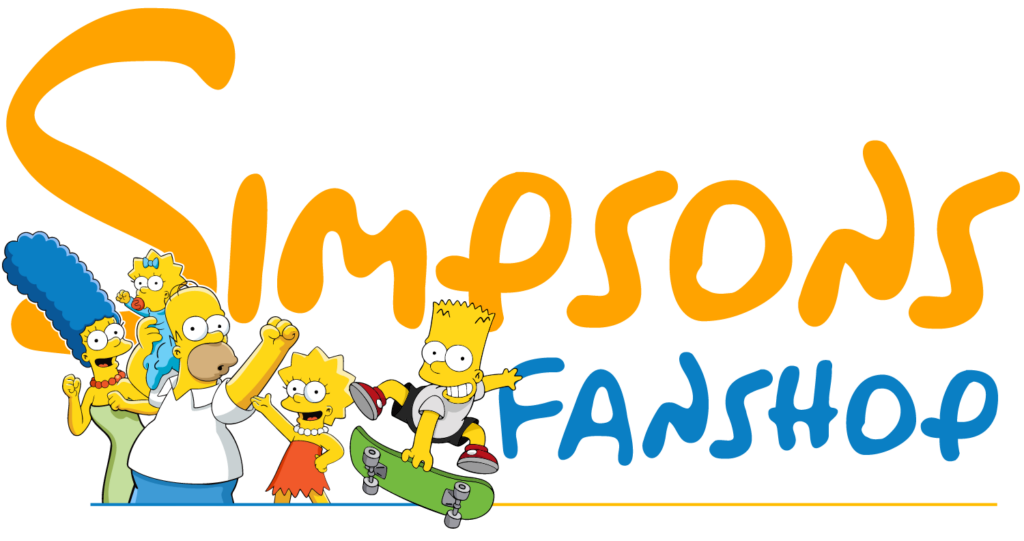Uncategorized
Homer Simpson’s D’oh! – The Ultimate Guide to The Simpsons’ Most Iconic Catchphrase
When it comes to Homer Simpson’s D’oh!, few television catchphrases have achieved such universal recognition and cultural impact. This simple exclamation of frustration has transcended its animated origins to become a legitimate dictionary entry and a cornerstone of pop culture language. Whether you’re a lifelong Simpsons fan or someone curious about this iconic expression, understanding the depth and significance of Homer’s signature phrase reveals much about both the character and the show’s lasting influence on modern entertainment.

The genius of “D’oh!” lies in its simplicity and relatability. Every person has experienced those moments of realization when they’ve made a mistake, forgotten something important, or found themselves in an unfortunate situation entirely of their own making. Homer Simpson’s frustrated utterance perfectly captures that universal human experience of self-inflicted disappointment.
The Origins and Creation of Homer Simpson’s D’oh!
The story behind Homer Simpson’s D’oh! begins with voice actor Dan Castellaneta, who drew inspiration from an unexpected source. The catchphrase was actually adapted from Jimmy Finlayson, a Scottish actor who appeared in many Laurel and Hardy films during the 1920s and 1930s. Finlayson would exclaim “Doooh!” when frustrated, though his version was more drawn out and dramatic.
Castellaneta shortened and modified this expression to create the punchy, immediate reaction that became Homer’s signature D’oh! The timing was perfect – the original Simpsons scripts simply included the direction “annoyed grunt,” leaving Castellaneta to improvise the specific sound. This creative freedom led to one of television’s most recognizable vocal expressions.

The first appearance of “D’oh!” occurred in the very first full-length Simpsons episode, “Simpsons Roasting on an Open Fire,” which aired on December 17, 1989. However, it was in subsequent episodes that the catchphrase truly found its rhythm and became an integral part of Homer’s character development.
Cultural Impact and Dictionary Recognition
The cultural significance of Homer Simpson’s D’oh! reached its pinnacle in 2001 when the Oxford English Dictionary officially added the word to their lexicon. This marked a historic moment – a fictional character’s catchphrase had become so widely used and understood that it warranted formal linguistic recognition.
The Oxford English Dictionary defines “d’oh” as “expressing frustration at the realization that things have turned out badly or not as planned, or that one has just said or done something foolish.” This definition perfectly encapsulates the essence of Homer’s character and his frequent mishaps throughout the series.
“The inclusion of ‘d’oh’ in the Oxford English Dictionary represents a remarkable achievement in popular culture linguistics, demonstrating how fictional expressions can become genuine additions to our everyday vocabulary.” – Oxford English Dictionary Editorial Team
Beyond dictionary recognition, “D’oh!” has influenced countless other media properties, comedy shows, and everyday conversations. It’s commonly used in professional settings, academic discussions about popular culture, and has been referenced in everything from political commentary to advertising campaigns.

The Psychology Behind “D’oh!” – Why It Resonates
The psychological appeal of Homer Simpson‘s D’oh! stems from its ability to externalize internal frustration in a socially acceptable way. Unlike profanity or aggressive expressions, “D’oh!” provides a harmless outlet for those moments when we realize we’ve made an error or found ourselves in an unfortunate situation.
Psychologists have noted that verbal expressions of frustration can actually help individuals process disappointment more effectively. The brief, explosive nature of “D’oh!” mirrors the sudden realization that often accompanies mistakes, making it an almost instinctive response for many people.
The catchphrase also serves as a form of self-deprecating humor. When someone says “D’oh!” after making a mistake, they’re acknowledging their error while simultaneously diffusing tension through humor. This psychological mechanism helps maintain social relationships and reduces the emotional impact of minor failures.
Emotional Release and Social Connection
Using “D’oh!” creates an immediate connection with others who understand the reference. It’s a shared cultural touchstone that can instantly communicate frustration while also signaling familiarity with popular culture. This dual function makes it particularly effective in both personal and professional contexts.
Research on emotional expression suggests that having specific words for particular feelings helps individuals better process and communicate their experiences. Homer’s “D’oh!” fills a linguistic gap for that specific type of self-inflicted frustration that doesn’t quite merit stronger language but requires more expression than a simple sigh.
Evolution of “D’oh!” Throughout The Simpsons Series
Over more than three decades of The Simpsons, Homer’s famous catchphrase has evolved in both frequency and context. Early episodes used “D’oh!” sparingly, making each instance more impactful. As the series progressed and the catchphrase gained popularity, it became more frequent, though the writers have generally been careful not to overuse it to the point of losing its effectiveness.
The delivery of “D’oh!” has also varied depending on the situation. Sometimes it’s a quick, sharp exclamation of immediate frustration. Other times, it’s drawn out for comedic effect or delivered with varying levels of intensity depending on the severity of Homer’s mistake.
Memorable “D’oh!” Moments in Simpsons History
Some of the most memorable uses of Homer Simpson’s “D’oh!” have become iconic moments in television history. These instances often coincide with Homer’s most spectacular mistakes or moments of realization, creating perfect storms of character-driven comedy.
- Nuclear plant safety violations – Homer’s workplace mishaps often trigger multiple “D’oh!” moments
- Forgotten anniversaries and birthdays – Family-related oversights produce some of the most relatable “D’oh!” reactions
- DIY home improvement disasters – Homer’s attempts at handyman work consistently result in frustrated exclamations
- Get-rich-quick scheme failures – Business ventures gone wrong often culminate in prolonged “D’oh!” sequences
International Variations and Translations
One fascinating aspect of Homer Simpson’s D’oh! is how it has been adapted for international audiences. Different language versions of The Simpsons have created their own interpretations of this iconic catchphrase, each reflecting the linguistic and cultural characteristics of their respective regions.
In the Spanish version, Homer says “Ouh!” which maintains the same vocal quality while adapting to Spanish phonetic patterns. The French version uses “T’oh!” and the German adaptation employs “Nein!” – each preserving the frustrated, exclamatory nature of the original while fitting naturally into the target language.
These international variations demonstrate the universal appeal of expressing frustration through simple, explosive sounds. The concept transcends language barriers, though the specific vocalization may change to accommodate different linguistic traditions and vocal patterns.
Global Recognition and Usage
Despite these regional adaptations, the original English “D’oh!” has gained recognition worldwide, even among non-English speakers. This global penetration speaks to the power of American media exports and the universal relatability of Homer’s character.
International merchandise featuring Homer Simpson’s D’oh! often uses the original English spelling and pronunciation, suggesting that the phrase has become a global lingua franca for expressing mild frustration or self-directed disappointment.

Merchandise and Commercial Success
The commercial potential of Homer Simpson’s D’oh! has been thoroughly explored through decades of licensed merchandise. From t-shirts and mugs to sophisticated collectibles, the catchphrase appears on countless products that allow fans to express their connection to the character and show.
D’oh! merchandise has proven particularly popular because it combines humor with functionality. A coffee mug featuring Homer’s catchphrase serves as both a practical item and a conversation starter, while clothing items allow fans to display their cultural literacy and sense of humor.
The success of Homer Simpson merchandise demonstrates the enduring appeal of well-crafted character elements. Unlike trendy phrases that quickly lose their novelty, “D’oh!” has maintained its relevance and commercial viability for over thirty years.
Print-on-Demand Opportunities
Modern print-on-demand technology has opened new possibilities for Homer Simpson D’oh! products. Custom designs can incorporate the catchphrase into personalized items, seasonal variations, and niche applications that weren’t possible with traditional mass production methods.
Popular print-on-demand items featuring “D’oh!” include:
- Office accessories – Mouse pads, desk calendars, and laptop stickers
- Seasonal items – Holiday ornaments, Halloween costumes, and themed decorations
- Personalized gifts – Custom text combinations with the famous catchphrase
- Home decor – Wall art, throw pillows, and kitchen accessories
The Science of Catchphrases and Memorable Dialogue
From a linguistic perspective, Homer Simpson’s D’oh! represents a perfect example of effective catchphrase construction. Several scientific principles explain why certain phrases become memorable and widely adopted while others fade into obscurity.
Phonetic appeal plays a crucial role in catchphrase success. The hard consonant sound followed by the open vowel in “D’oh!” creates a satisfying vocal expression that feels natural to pronounce. This phonetic structure makes the phrase easy to remember and enjoyable to say.
The emotional authenticity of the catchphrase also contributes to its success. Unlike manufactured marketing slogans, Homer Simpson’s D’oh emerged organically from character development and feels genuine rather than forced. This authenticity resonates with audiences and encourages natural adoption into everyday speech.
Neurological Impact of Familiar Phrases
Neuroscience research has shown that familiar phrases like “D’oh!” trigger recognition patterns in the brain that create positive associations. When people hear or use the catchphrase, they experience a brief connection to positive memories associated with the show and character.
This neurological response helps explain why Homer Simpson’s catchphrase remains effective even after decades of use. Each instance reinforces existing positive associations while potentially creating new ones, maintaining the phrase’s emotional impact over time.
Modern Usage and Social Media Impact
In the digital age, Homer Simpson’s D’oh! has found new life through social media platforms, memes, and online communication. The phrase translates perfectly to text-based communication, where its brevity and immediate recognition make it ideal for expressing frustration in comments, messages, and posts.
Social media usage has actually expanded the contexts in which people use “D’oh!” The phrase now appears in professional discussions, educational content, and formal communications where its humor can help soften the impact of admitting mistakes or oversights.
The visual nature of modern communication has also benefited “D’oh!” merchandise and imagery. Animated GIFs, emoji-style representations, and visual memes featuring Homer’s frustrated expression have become common ways to communicate the same sentiment without using words at all.
Generational Transfer and Continued Relevance
One remarkable aspect of Homer Simpson’s D’oh is its successful transfer across generations. Parents who grew up with The Simpsons have passed the phrase to their children, who may not even watch the show regularly but still understand and use the expression.
This generational transfer demonstrates the phrase’s evolution from entertainment content to genuine linguistic tool. “D’oh!” has transcended its origins to become part of the cultural inheritance passed from one generation to the next.
Frequently Asked Questions About Homer Simpson’s “D’oh!”
When did Homer Simpson first say “D’oh!”?
Homer first said “D’oh!” in the premiere episode “Simpsons Roasting on an Open Fire” which aired on December 17, 1989. However, the catchphrase became more prominent and frequent in subsequent episodes as the character developed.
Is “D’oh!” really in the dictionary?
Yes, “D’oh!” was officially added to the Oxford English Dictionary in 2001. The dictionary defines it as expressing frustration at the realization that things have turned out badly or that one has just said or done something foolish.
Who created the “D’oh!” sound?
Voice actor Dan Castellaneta created “D’oh!” by adapting a similar expression used by Jimmy Finlayson in old Laurel and Hardy films. Castellaneta shortened and modified the original “Doooh!” to create Homer’s signature catchphrase.
How often does Homer say “D’oh!” in The Simpsons?
Homer says “D’oh!” multiple times per episode on average, though the frequency has varied throughout the series’ run. Early episodes used it more sparingly, while later seasons incorporated it more regularly as it became synonymous with the character.
Can I use “D’oh!” in professional settings?
“D’oh!” is generally considered appropriate for professional use as a mild expression of frustration or self-deprecating humor. Its widespread cultural recognition and non-offensive nature make it suitable for most workplace environments.
Conclusion: The Enduring Legacy of “D’oh!”
The journey of Homer Simpson’s “D’oh!” from a simple animated catchphrase to a legitimate dictionary entry represents one of the most successful examples of popular culture linguistic influence in modern history. This remarkable achievement demonstrates the power of authentic character development and the universal appeal of well-crafted expressions.
More than just entertainment, “D’oh!” has provided millions of people with a socially acceptable, humorous way to express frustration and acknowledge mistakes. Its continued relevance across generations, languages, and cultural contexts proves that truly effective communication transcends its original medium.

For fans of The Simpsons and collectors of pop culture memorabilia, items featuring Homer’s iconic “D’oh!” represent more than just merchandise – they’re tangible connections to a piece of linguistic history. Whether displayed as collectibles or used in daily life, these products celebrate the enduring appeal of one of television’s most recognizable characters.
As The Simpsons continues to produce new episodes and reach new audiences, Homer Simpson’s D’oh! remains as relevant and effective as ever. Its perfect balance of humor, relatability, and emotional authenticity ensures that this simple expression will continue to resonate with people experiencing those all-too-human moments of frustrated realization.
Ready to celebrate Homer’s iconic catchphrase? Explore our collection of Homer Simpson merchandise featuring “D’oh!” and other memorable elements from America’s favorite animated family. From classic designs to modern interpretations, find the perfect way to express your appreciation for this legendary piece of pop culture history.

